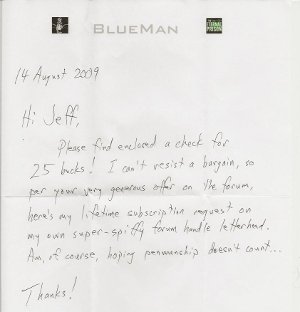Your Mortal Ways Booooore Me
Friends, it probably isn’t a well known fact that my gorgeous wife, The Duchess, who secretly (or not so secretly) runs this household forces me to watch the MTV Video Music Awards show every year. The reasons for this are tied up in obscure traditions established during our courtship, when apparently I was willing to do a lot of things in order to impress her that I now regret, once of which was volunteering to watch the VMAs with her one night. One thing all young men have to realize is that when you’re dating, the most ridiculous things can become bronzed as Special Moments that will come back to ruin you later in life. The VMAs is one such moment. So was promising her that someday I’d be a rich author and she’d be a Woman of Leisure; take my advice and never promise anything like that to your partner. You will regret it.
So, I sat through most of the VMAs this week. Which means I got to stare blankly at the screen in perplexity every time Russell Brand prosecuted some of his ‘comedy’, I got to be mildly impressed with Janet Jackson huffing and puffing her way through her old Scream dance routine (and almost pull it off perfectly, which in itself was pretty impressive), and yes, I got to see Kanye West finally turn the tide of jackass opinion against himself. Although, you know, Taylor Swift should maybe man up a little. It’s not like she was stabbed.
Anyway, I also got to see the extended New Moon trailer. I’ve never read the Twilight books and I did not see the first film. I’ve got nothing against them. I’m told they are not great books, but then I guess your mileage will vary on books, especially books that come with a built-in backlash like Twilight. So I only took two things from the New Moon trailer:
- Kristen Stewart must have studied every episode of ER in order to approximate the George Clooney Circa 1999 Acting Style of looking at your shoes and frowning when you speak every line of dialog, and
- Elder Vampires?!? Sweet baby Jebus, Anne Rice has struck again.
Why is it that every Vampire story has to have ancient, vaguely rotten-looking vampires in ridiculous outfits, lounging about in ridiculously luxurious and/or old settings like Eurotrash on smack? Now, this was a pretty fun idea 40 years ago. And it can, of course, be a fun idea again and again if handled well. But it does seem like it’s the go-to trope whenever you’ve got vampires. Somewhere, there must be a 1000-year-old debauched rich dude with long fingernails who THE MOST POWERFUL VAMPIRE IN THE WOOORRRLLDDD.
Again, not having read the book or seen the movies, I am basing this on the trailer alone. Which is how I roll: Ignorant and fearless. So maybe I’ve got New Moon all wrong and it averts or subverts this trope. It’s still a pretty common feature in vampire tales, as far as I can tell. And again: It’s not a bad idea in and of itself, though I can’t help but wonder if I’m the only one who rolls his eyes whenever someone in a vaguely 17th-century suit shows up looking dapper and menacing, dropping gradeschool historical references – gasp! – as if he was there witnessing them at the time!!
Obviously, vampires are immortal – or at least, traditionally they are; we are dealing with the imagination, after all. We can has mortal vampires if we wants ’em. But okay, so say your vamps are immortal – fine. One can imagine they might play the stock markets well, steal priceless art and fence it, profit from wars and such. If I knew I’d still be here 400 years from now, I could just tuck my savings account into a slow but steady investment and wait for it to top a trillion or so, patient as a spider. So okay, having rich, ancient vampires who have great power and influence isn’t a crazy idea at all. But must they always be collected into some sort of Vampire Council? Jebus, vamps suck blood and murder humans who used to be their fellow houseapes. A VC just seems a bit. . .civilized.
Then again, most of the body horror dread has been sucked out of Vampires, to the point where they are now acceptable crushes for pre-teen girls. So maybe they form clubs and scrapbook together – why not a council?

